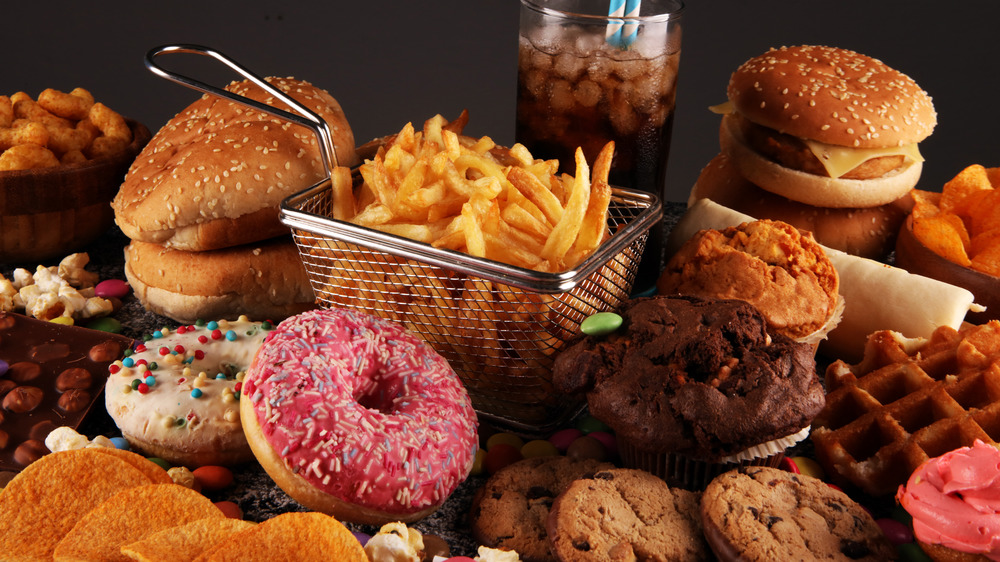The Surprising Reason You Need To Rethink Your Carb Intake
Many of us have a love-hate relationship with carbs. While nutritional science tells us that carbs are our bodies' primary source of energy, the food group has also developed a bad reputation. That's because of what our bodies do to carbs when we consume them: they bump up our blood sugar as our digestive system turns carbs into glucose. This glucose either gets used up as we move or think — or stored in our livers and muscles as a reserve source of energy (via Mayo Clinic).
We've all been told that not all carbs are created equal, and this caveat is echoed by Dr. Brooke Scheller, clinical nutritionist and Director of Nutrition at Freshly, who has made it her life's work to improve diets by eating more vegetables and making small daily dietary changes. Scheller believes it could be time to take a second look at diets which lower your carb intake, and not just because it is good for your waistline.
"It's no surprise that eating a better diet can make you feel better overall. But why might a low-carb diet be a great choice? When it comes to carbs, the types of carbs you're eating matters," Scheller tells Mashed. "This goes for whether you're eating a lot of carbs or little carbs. By the rule of glycemic index, the same amount of carbs from different sources can really make a big difference."
Early studies show a link between brain functions and high-glycemic food
One area that is of growing interest to nutrition experts like Scheller involves the impact of carbohydrates on how our brains work — and whether a lower-carb or lower-glycemic diet might not just benefit our waistlines, but our brains too. Scheller cites early-stage studies that have shown a link between consuming a higher glycemic diet and having elevated blood glucose levels with a greater rate of cognitive decline (via National Library of Medicine). This means that "diets rich in refined/simple carbohydrates may lead to high blood glucose, and have been associated with poorer memory and reaction time," Scheller says. She also raises a separate, unrelated study that revealed a possible link between a high-glycemic load diet with symptoms of depression, mood disturbance, and fatigue (via National Library of Medicine).
"Our blood sugar has an impact on how our brain functions since glucose are the main source of fuel for the brain — unless you're on a keto diet. Therefore, the ups and downs of blood glucose on a high carb/high sugar diet are directly related to our brain," Scheller tells Mashed. "Have you ever experienced the 2 p.m. afternoon slump after a high carb lunch? You're not alone."

